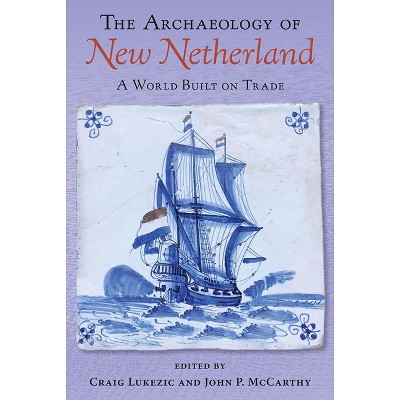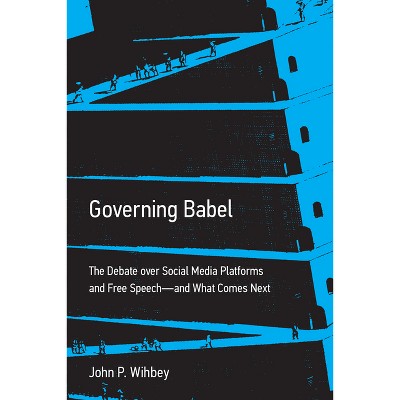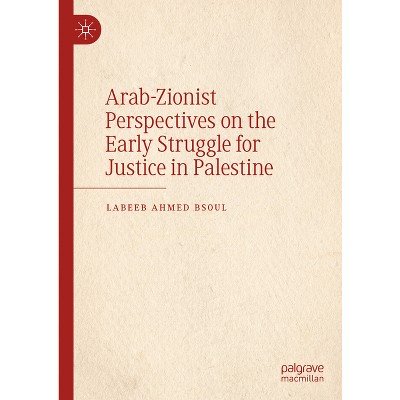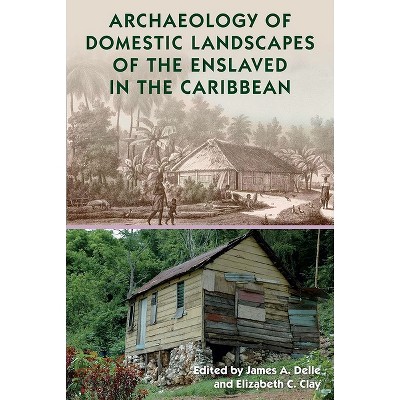Sponsored

Archaeology of Babel - by Siraj Ahmed (Hardcover)
$130.99
In Stock
Eligible for registries and wish lists
Sponsored
About this item
Highlights
- This book locates the origins of the modern humanities in the philological practices of late 18th-century British scholars in colonial India, offering a radical reappraisal of a range of disciplines and excavating hidden pre-colonial practices that might well help the humanities move beyond their current methodological and political impasses.
- About the Author: Siraj Ahmed is Associate Professor in the Ph.D.
- 280 Pages
- Literary Criticism, Asian
Description
About the Book
This book locates the origins of the modern humanities in the philological practices of late 18th-century British scholars in colonial India, offering a radical reappraisal of a range of disciplines and excavating hidden pre-colonial practices that might well help the humanities move beyond their current methodological and political impasses.Book Synopsis
This book locates the origins of the modern humanities in the philological practices of late 18th-century British scholars in colonial India, offering a radical reappraisal of a range of disciplines and excavating hidden pre-colonial practices that might well help the humanities move beyond their current methodological and political impasses.Review Quotes
"A work of theory and method, Archaeology of Babel is a very important intervention into a current high-profile discussion of comparative literature. Every chapter of this galvanizing and historically informed book develops new possibilities for the field."--Lee Morrissey "Clemson University"
"According to Siraj Ahmed's revelatory Archaeology of Babel: The Colonial Foundation of the Humanities, modern philology is at once a tool and a product of colonial domination....This is an ambitious, significant, and potentially incendiary book that reconceptualizes humanistic inquiry tout court."--Jayne Lewis "Studies in English Literature"
"An important, scintillating study that deserves a wide interdisciplinary readership, Archaeology of Babel reappraises the historical roots of philology and encourages readers to re-imagine our present."--Talal Asad, The Graduate Center "CUNY"
"Siraj Ahmed launches a powerful critique of the method of comparative philology that has established a hegemony of the printed text, thereby impeding our ability to conceptualize collective life. A reasoned but passionate plea for reading anti-philologically, this impressive book is sure to provoke much discussion."--Partha Chatterjee "Columbia University"
About the Author
Siraj Ahmed is Associate Professor in the Ph.D. Program in English at the Graduate Center, City University of New York and in the Department of English and the Program in Comparative Literature at Lehman College. He is the author of The Stillbirth of Capital: Enlightenment Writing and Colonial India (Stanford University Press, 2012).Dimensions (Overall): 9.1 Inches (H) x 6.2 Inches (W) x .8 Inches (D)
Weight: 1.1 Pounds
Suggested Age: 22 Years and Up
Number of Pages: 280
Genre: Literary Criticism
Sub-Genre: Asian
Publisher: Stanford University Press
Theme: Indic
Format: Hardcover
Author: Siraj Ahmed
Language: English
Street Date: December 12, 2017
TCIN: 1002213074
UPC: 9780804785297
Item Number (DPCI): 247-28-9618
Origin: Made in the USA or Imported
If the item details aren’t accurate or complete, we want to know about it.
Shipping details
Estimated ship dimensions: 0.8 inches length x 6.2 inches width x 9.1 inches height
Estimated ship weight: 1.1 pounds
We regret that this item cannot be shipped to PO Boxes.
This item cannot be shipped to the following locations: American Samoa (see also separate entry under AS), Guam (see also separate entry under GU), Northern Mariana Islands, Puerto Rico (see also separate entry under PR), United States Minor Outlying Islands, Virgin Islands, U.S., APO/FPO
Return details
This item can be returned to any Target store or Target.com.
This item must be returned within 90 days of the date it was purchased in store, shipped, delivered by a Shipt shopper, or made ready for pickup.
See the return policy for complete information.
Trending Poetry



$22.80
was $26.60 New lower price
Buy 1, get 1 50% off select books
5 out of 5 stars with 4 ratings

$23.09
Buy 1, get 1 50% off select books
4.7 out of 5 stars with 21 ratings

$23.09
Buy 1, get 1 50% off select books
4.2 out of 5 stars with 23 ratings

$9.85 - $23.09
MSRP $15.99 - $32.99
Buy 1, get 1 50% off select books
4.8 out of 5 stars with 139 ratings





